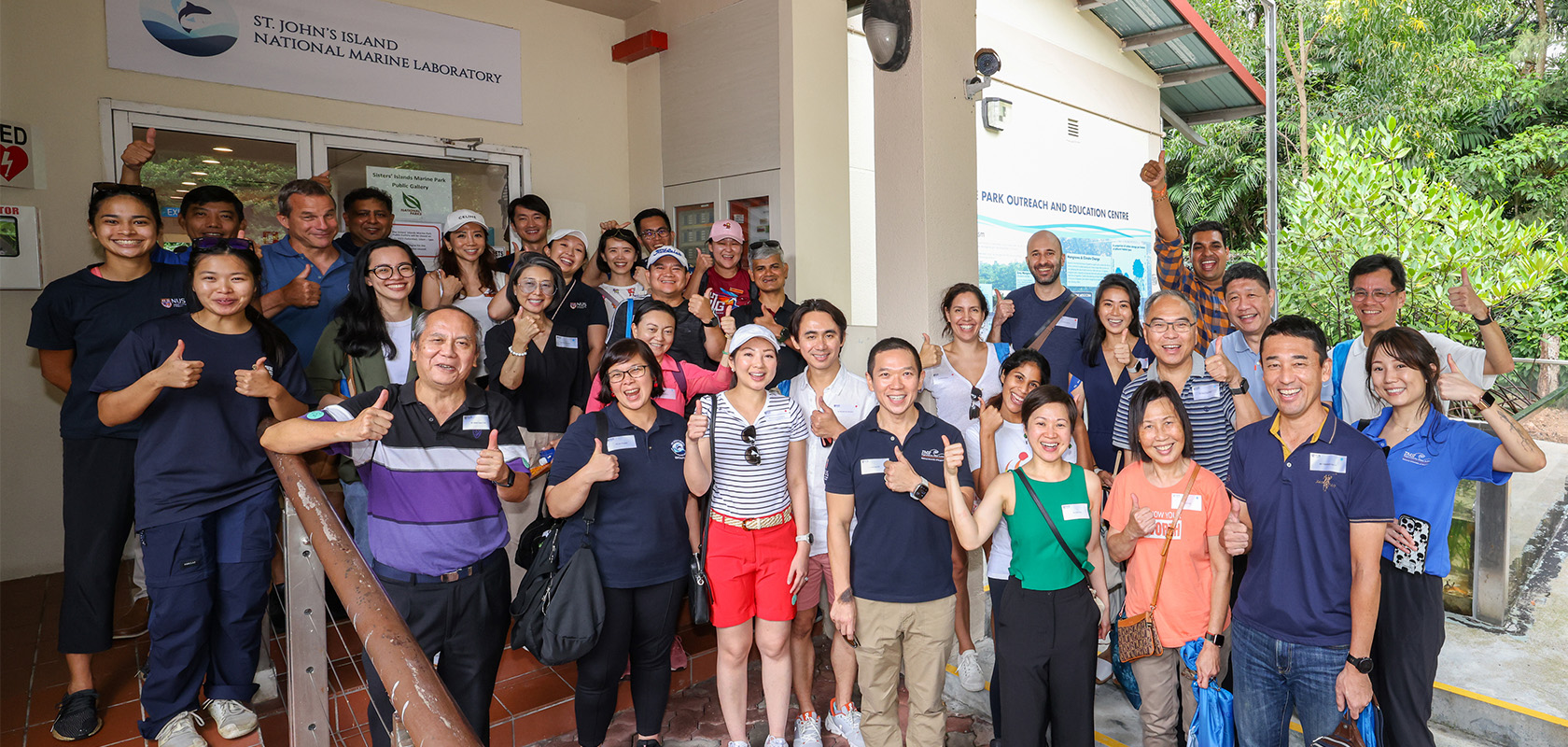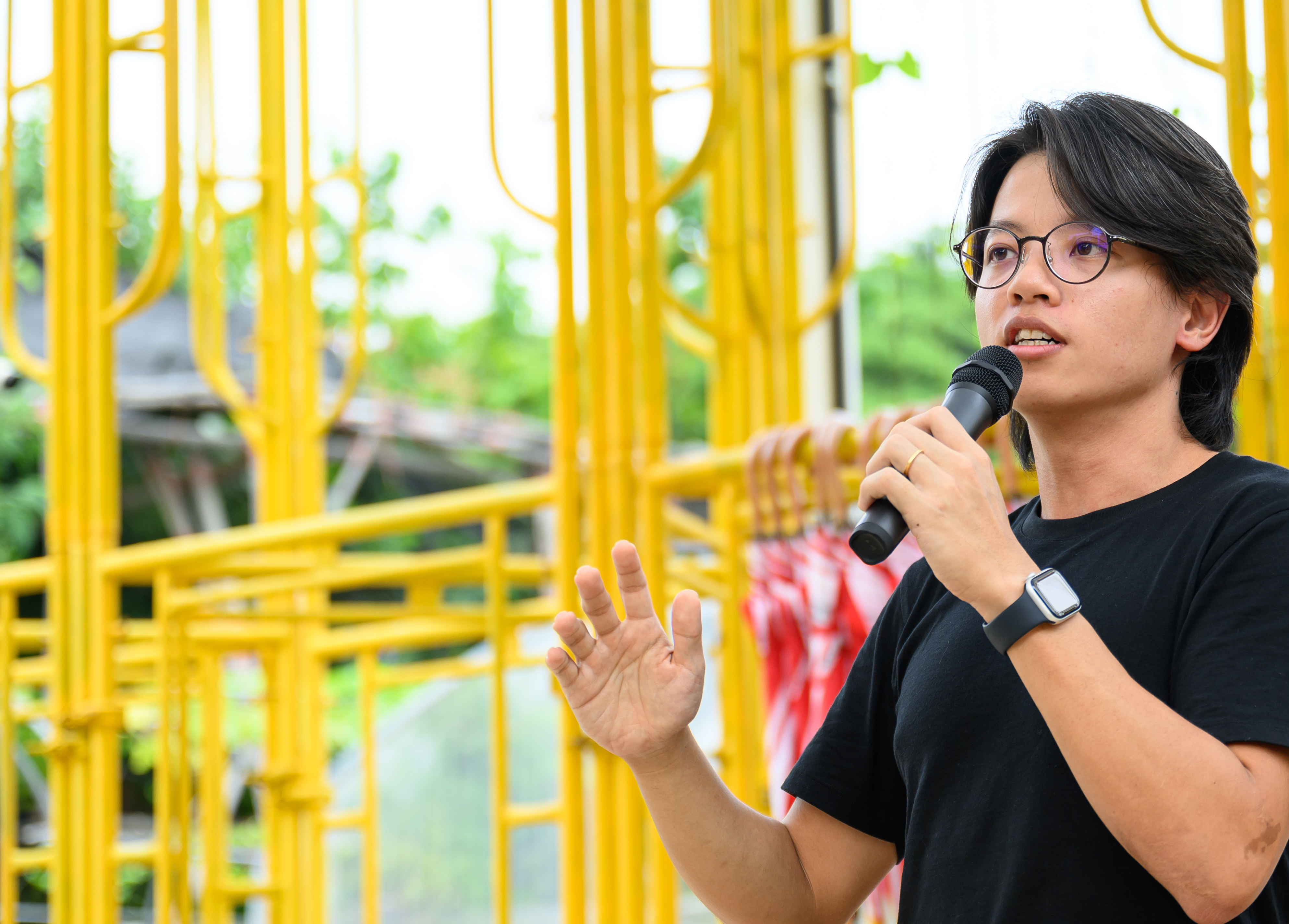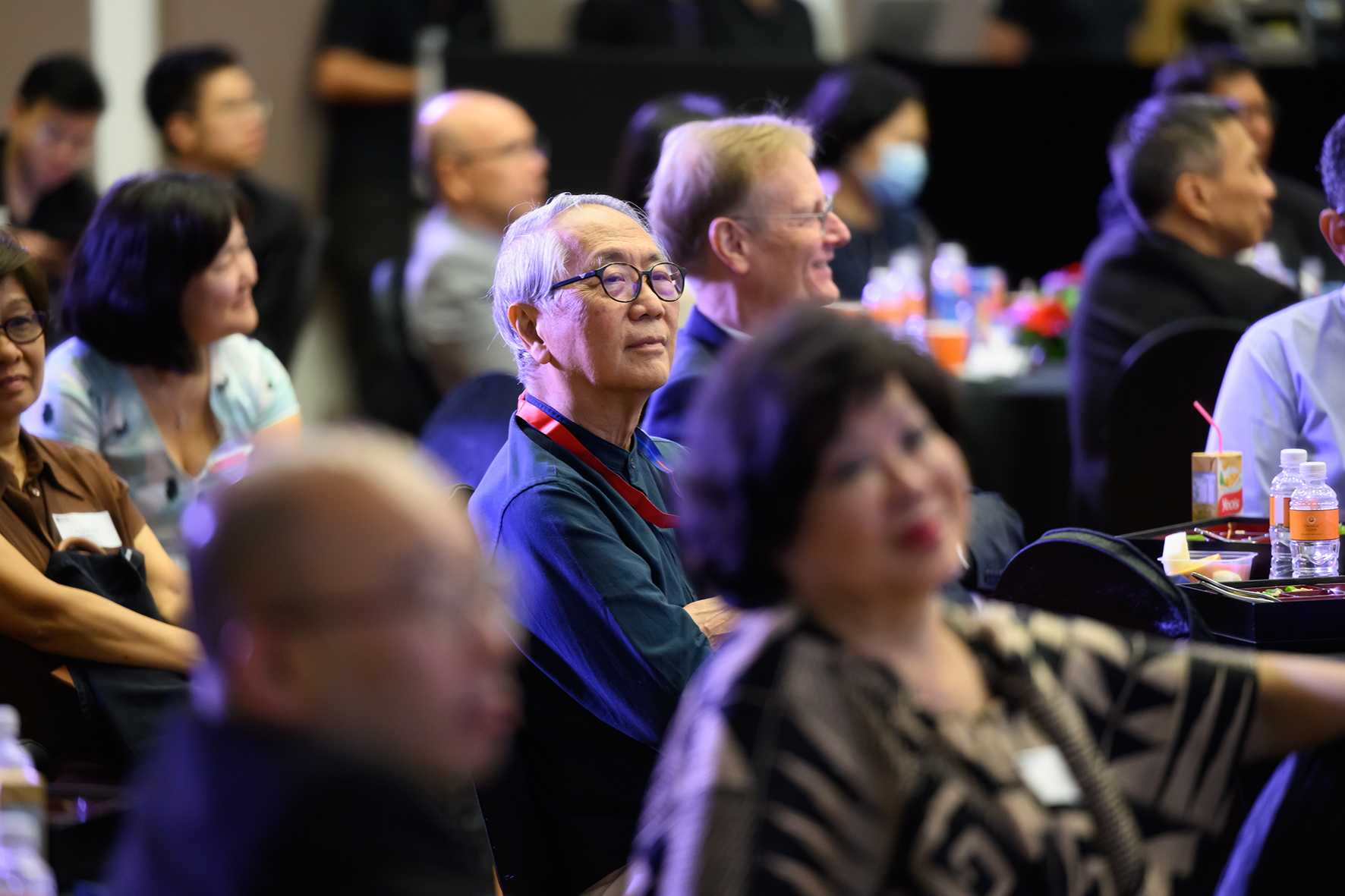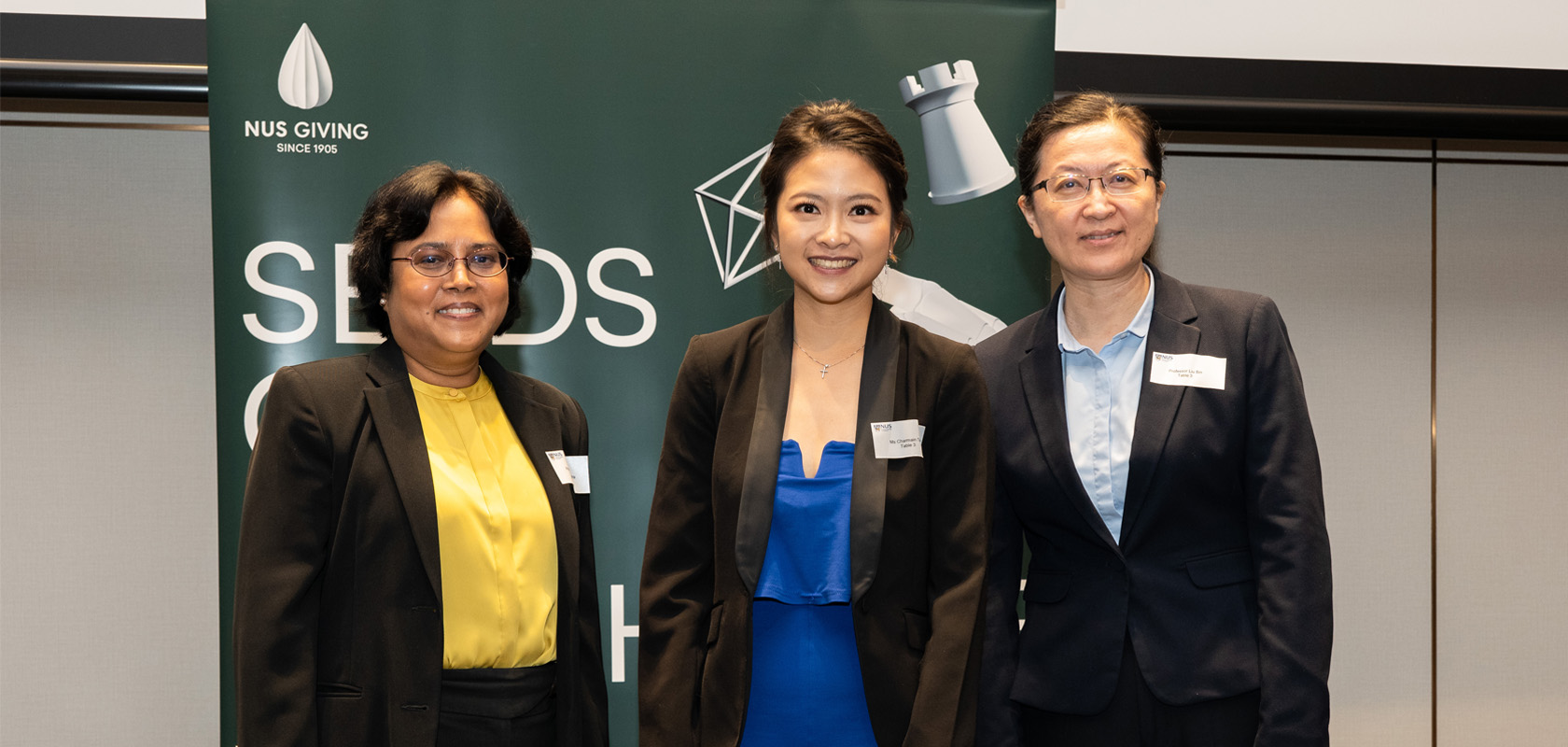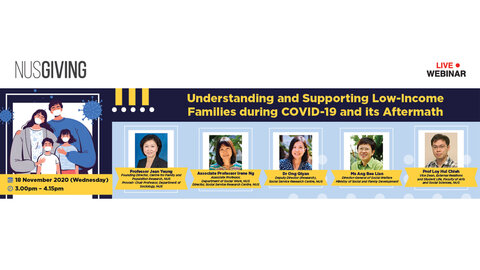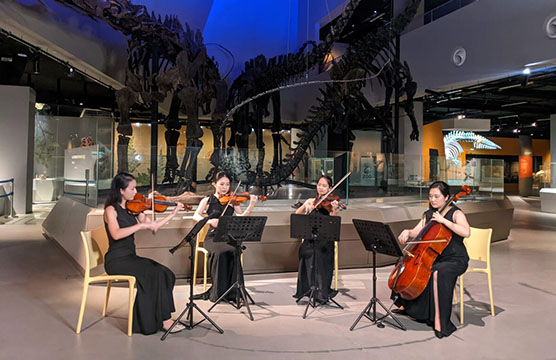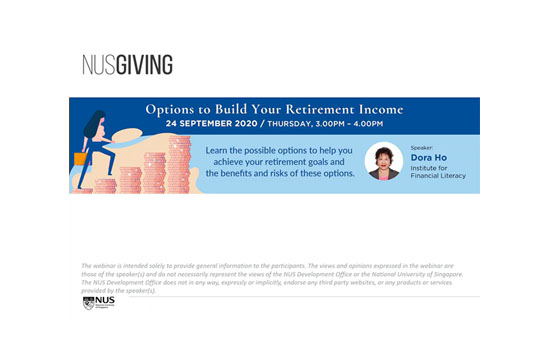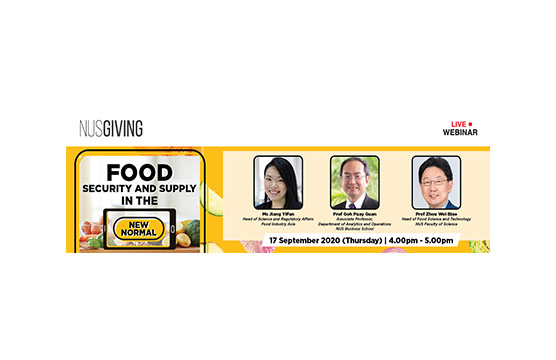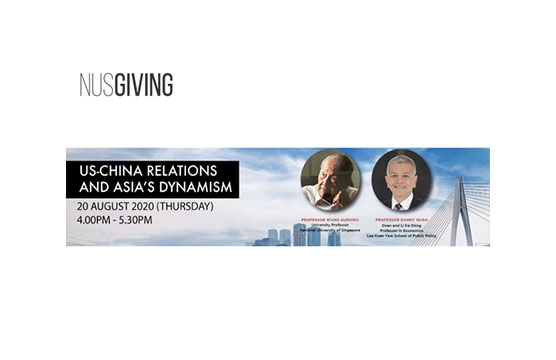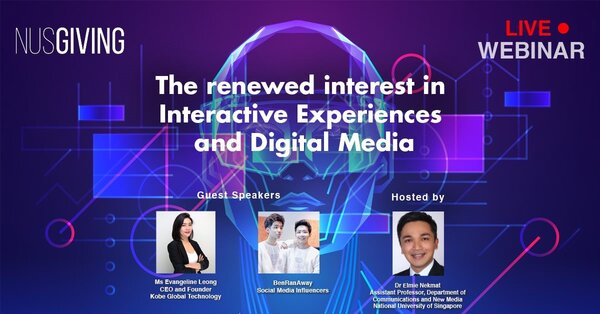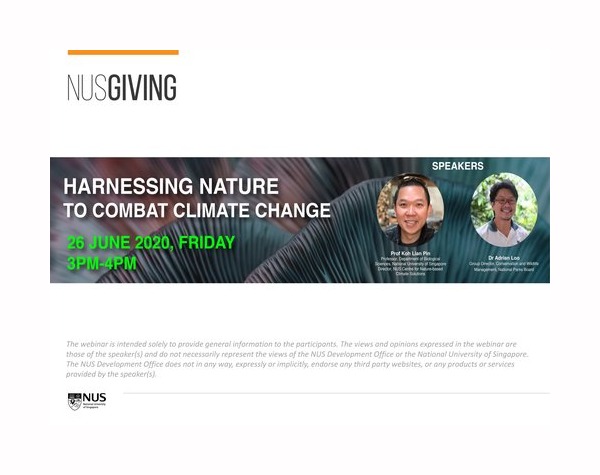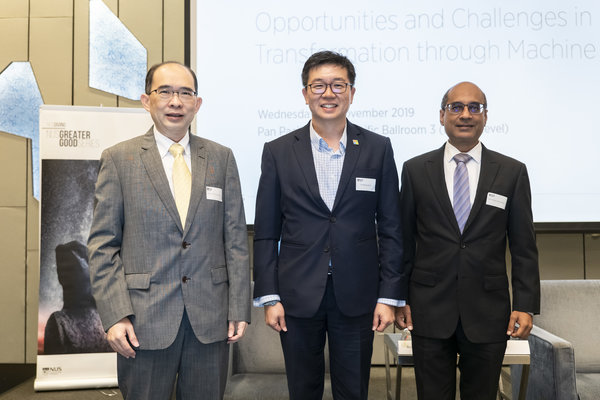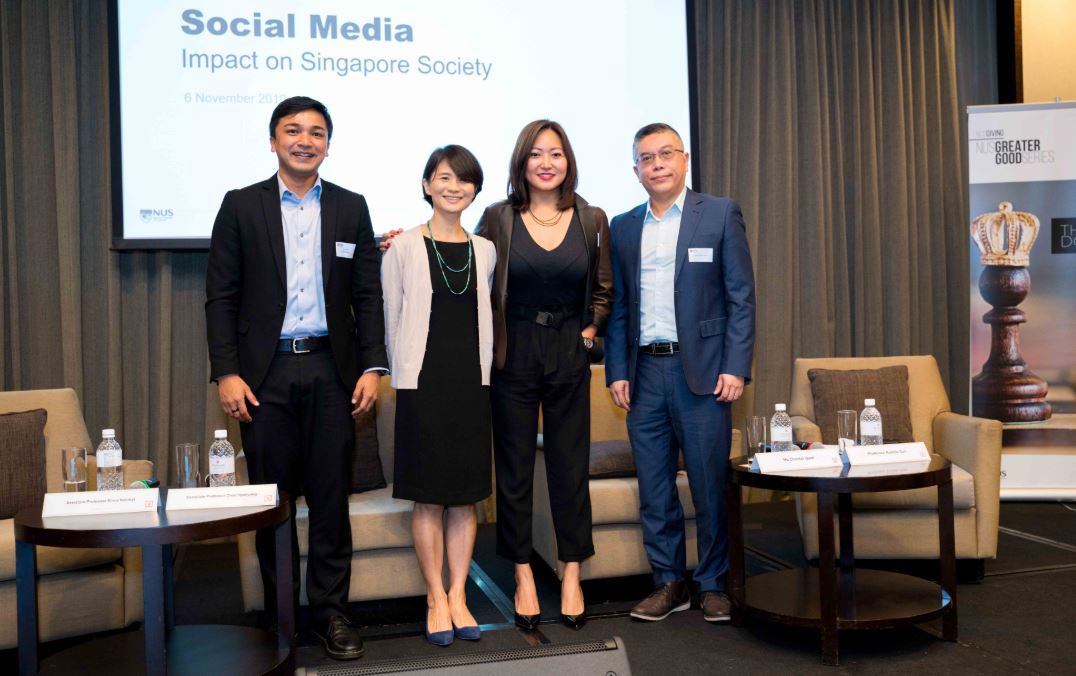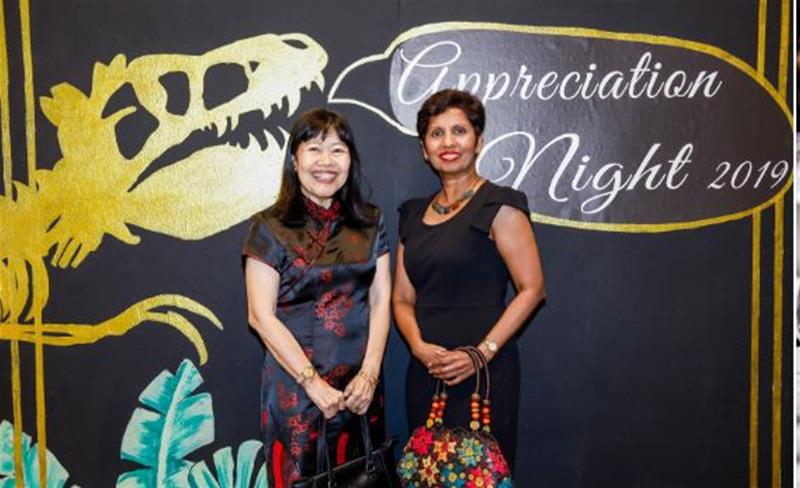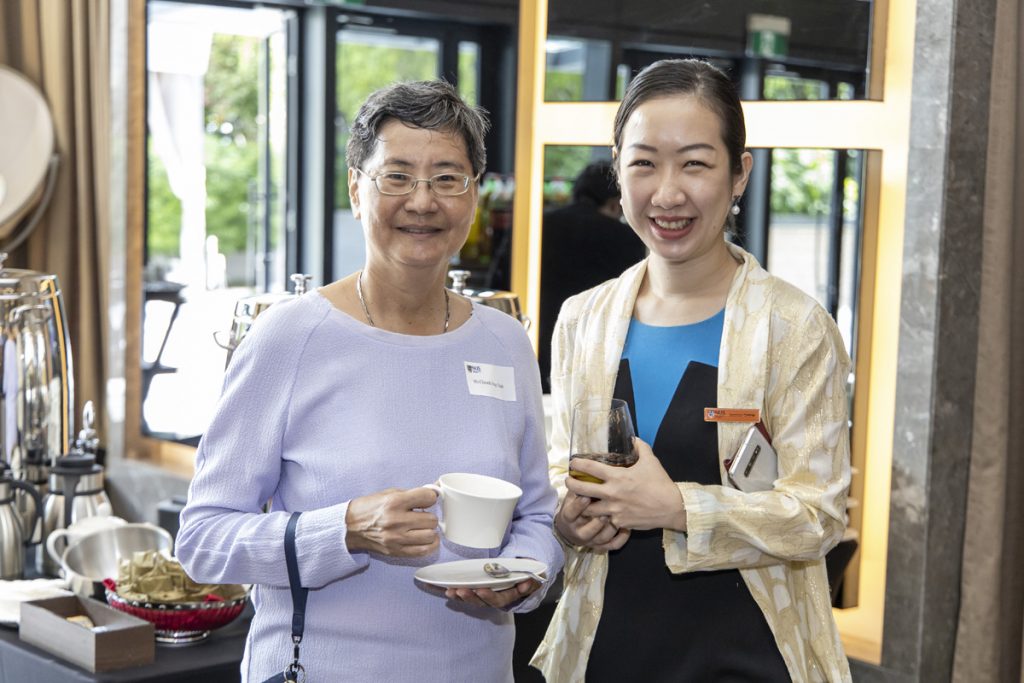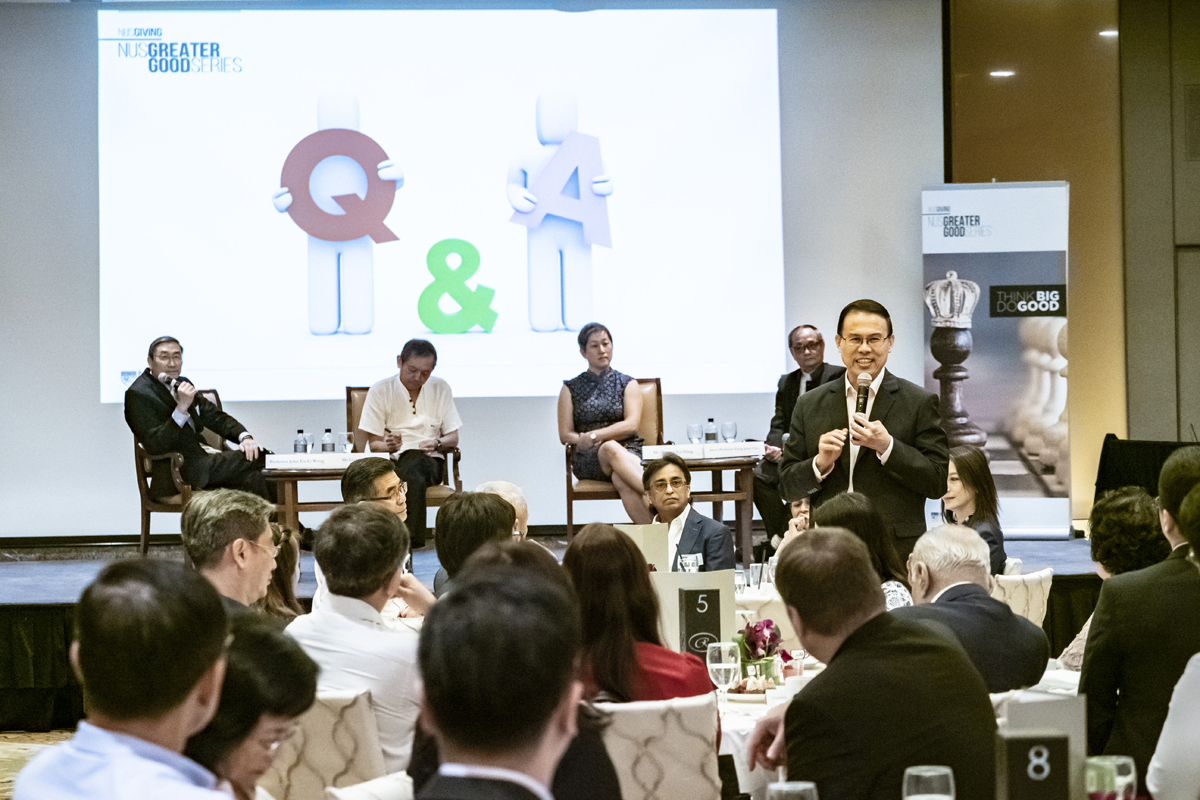NUS Giving Webinar Series – Dialogue with NUS Alumni: Social Entrepreneurship
Aug 21, 2020
A new generation of Singaporeans who are passionate about improving the well-being of people and the environment
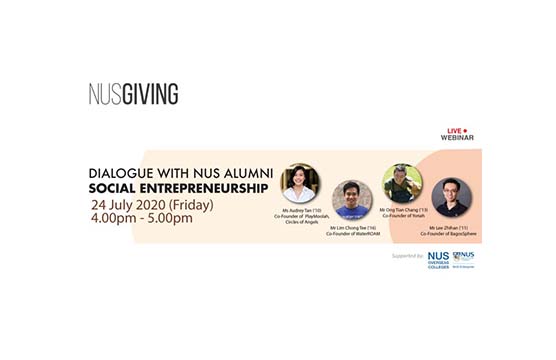
Singapore prides itself as a conducive breeding ground for start-ups with over 50,000 new businesses formed each year. With an increasing number of young entrepreneurs championing a social cause through their start-ups, we see a new generation of Singaporeans who are passionate about improving the well-being of people and the environment.
During the NUS Giving Webinar Series titled Dialogue with NUS Alumni: Social Entrepreneurship, three NUS alumni entrepreneurs share about their respective start-up journey and how they deliver positive social impact on the communities they serve while facing the constant pressure of achieving investor returns.
“What were the initial turning points that convinced and motivated you to embark on the path of a social entrepreneur, which is a road less travelled?” asked Ms Audrey Tan (’10), co-founder of PlayMoolah and Circles of Angels, and moderator of the webinar.
“It started off with my sense of adventure and curiosity when I was a student,” shared Mr Lim Chong Tee (’16), co-founder of Wateroam. The company develops portable water filters to make unclean water safe, drinkable and accessible for people in need. Wateroam has since benefitted 83,000 people across 33 countries, in line with its vision to build a world without prolonged thirst.
“The pivotal moment happened when I was in Cambodia for an Overseas Community Involvement Project. I was teaching in a school when I came across a child drinking water directly from the well and upon a closer look, what I saw caught me by surprise – the water was slimy and green, with bugs skittering on the surface. As a result, villagers were having chronic diarrhoea all the time as they did not have access to proper drinking water. The clear drinking water that flows out of our tap is something that we take for granted and not as accessible for others,” Mr Lim elaborated.

“I resonate with Chong Tee’s experience of getting out there and being on-the-ground,” added Mr Lee Zhihan (’11), co-founder of BagoSphere. BagoSphere is a workforce development company based in the Philippines, helping people develop human skills that unlock their full potential and drive performance.
“On top of that, the days of my childhood were instrumental too. One particular memory that I have is my grandmother bringing me along to look for work at various restaurants. She managed to secure a job as a dishwasher but was working for long hours and earning very little. Though she has no formal education, she was talented in cooking and great at looking after children. Looking back, I felt that there was a gap in her skills and the opportunities available during her time – Singapore in the 1960s and the 1970s. Now, I want to help people like my grandmother,” shared Mr Lee.
“For me, it was hearing about the measles outbreak in vaccinated children in Papua New Guinea. It was mind-boggling. That’s when I realised that even if the vaccine is administered wrongly, you won’t know it till the children are around four to five years of age because that’s when they become susceptible. Plus, with the rugged terrain there, it will never be possible to build any proper transport infrastructure. That’s when it got me thinking,” revealed Mr Ong Tian Chang (’13), co-founder of social enterprise, Yonah. Yonah seeks to connect rural healthcare systems by establishing drone-port nodes to service the most remote communities around the world.
In their quest to deliver positive social impact to communities around the world, how do they manage the constant pressure of achieving investment returns?

“As an engineer, my strength is in the technical aspect of things. The question of balancing impact and financial viability – the difference between engineering a drone and engineering a business machine – requires two very different paradigms. Initially I was too fixated on wanting to use the technology rather than being open to other approaches to the same issues that have the same impacts. Over the years, I had to learn more on what it takes to engineer a business machinery,” shared Mr Ong.
“For BagoSphere, we are always trying to balance impact and financial viability even though there is not going to be a stage whereby we can achieve a perfect balance. We define our impact as helping young people who do not have the ability to find good jobs and aim to be collaborative and mutualistic in the process,” elaborated Mr Lee.
As a closing note, the panellists were asked to share their hopes and dreams as founders of the social innovations that they have embarked on and one key similarity can be seen amongst the trio. It is the desire to empower the locals to bring about change in their own communities.
“By extending our hands to the less-privileged, we hope to support them to stand up by themselves and move up the social ladder in the process. We hope that they can become heroes of their own fate and then guardians of their community,” Mr Lim summed it up.
Many entrepreneurship programmes in NUS provide students with entrepreneurial exposure and experiences in various industries, imparting the skill sets that they need to become the change-makers of the future, and providing the resources and support for them to create their own start-ups.
For further information on the NUS Giving Webinar Series, contact the Events team at dvoevents@nus.edu.sg.

